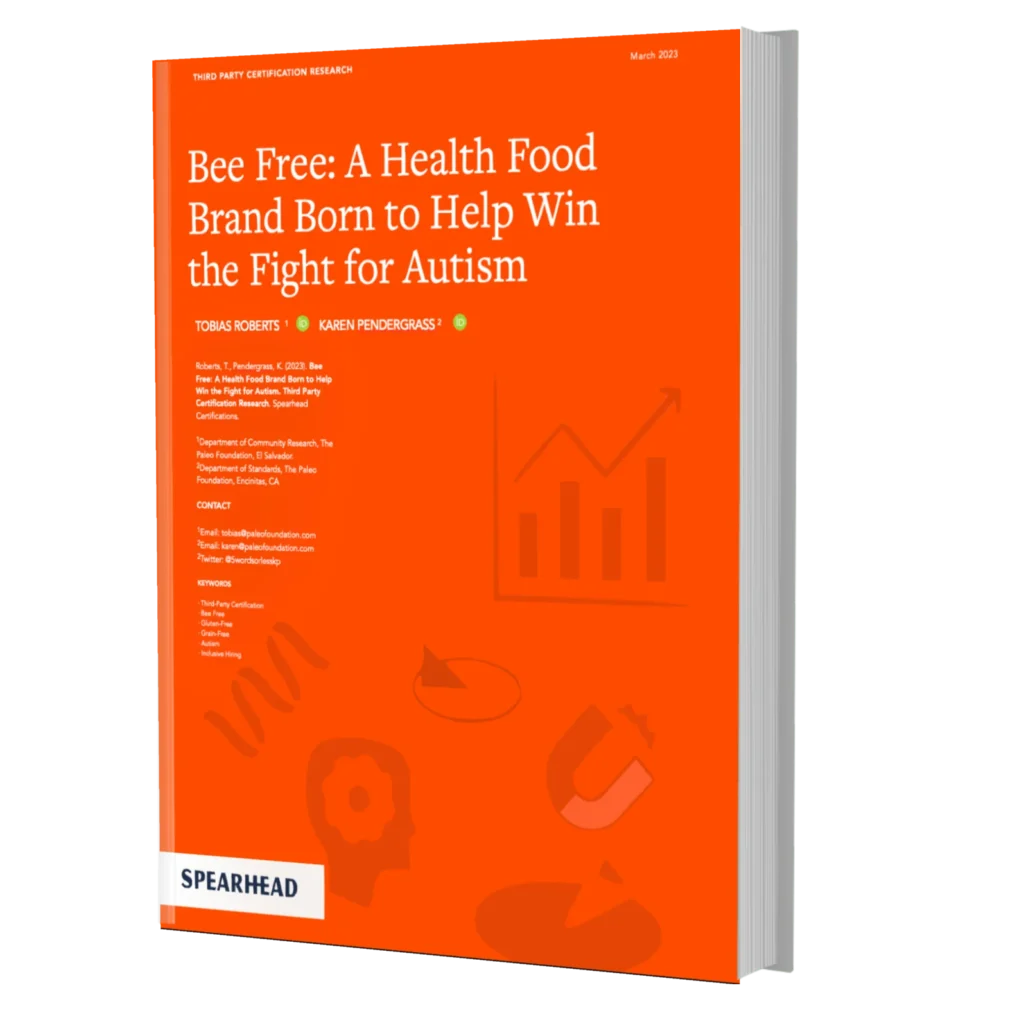Third-Party Certifications: A Way to Show Brand Commitment to Shared Consumer Values.
In 2016, Bee Free invested in several third-party certifications, including Paleo certification and Grain-Free certification. Before that, the company had also received a gluten-free certification. As the company grew, it found that its gluten-free product line was exactly what its consumers were looking for. They found that many of their consumers showed intense brand loyalty, and their customers validated their products, which fit many of their needs for their specific dietary requirements.
“We were also responding to what was hot and trendy in the consumer packaged goods market,” Wiese explains. “We’ve tried our hardest to really stay a step ahead of what consumers are looking for and demanding. We feel like that’s a good position for us to be in, and continuing to really listen to what our consumers are asking for helps us to continue to grow.”
One of the ongoing hottest trends in health food markets is gluten-free, grain-free products made with natural ingredients, low sugar content, and food products with third-party certifications. “Our certification with the Paleo Foundation has really helped validate our product and our brand out there in the marketplace,” Wiese believes. “When our consumers validate the quality of our products, not only with their purchases but also through their support on social media and other places, that really gives us strength. We really believe that our third-party certifications really help us build confidence with our customer base. And that’s a really big deal.”
For Bee Free, their gluten-free, grain-free, and Paleo certifications were a natural fit precisely because these values were essential to their customer base. “If you’re somebody who has a severe reaction when you eat gluten, it’s understandable the need to be really specific about the foods that you choose to pot into your body,” Wiese says. “Given that was a part of our customer base, it was really important to build that confidence with our consumers from the very early beginnings of our company. Because we took the time to get to know our customers and what was really important to them, we understood the need to show a clear commitment to those standards. This allowed us to create a higher trust level, so our customer could be assured that a product truly is gluten-free.”
With their certifications, Bee Free can showcase their shared values with their loyal customer base at the front and center of their packaging. “This allows us to get our values and commitments out there in front of the eyes of the consumers who truly value that,” Wiese says. “We take health and safety very seriously, and we knew we needed to have somebody else involved in the process. Third-party certifications, then, provided another factor and another level of trust for our consumers. “
Because the company was started as a direct response to helping Wiese’s son with autism, the gluten-free and grain-free certifications also provided an attractive, organic, and natural pathway for direct marketing strategies to consumers dealing with similar issues. “The education piece was certainly a part of the reason we invested in these third-party certifications,” she says. Many people don’t have the necessary information, and just providing that information is helpful. If your family has anyone with special dietary needs, and you’re the primary buyer or cook for your home, understanding the benefits of certain types of diets is essential.”
Wiese wanted Bee Free’s products to offer educational value to families while giving them a better-tasting food option, a higher level of confidence in the clean ingredients, and a deeper level of trust and connection with the brand. When all of those things come together, the consumer typically makes it a priority to spread the word and share their new knowledge with other friends with the same struggles or issues. From a marketing perspective, consumers sharing that knowledge that the brand may have been able to communicate also leads to “word-of-mouth” advertising for the brand.
“Over the years, we have created this really amazing, tight-knit tribe, as we like to say, of consumers and others who learn from us along the way. They believe in us and we do life right alongside each other. It is really, really unique, and it’s really special. And I feel really blessed to be part of it,” Wiese says.

